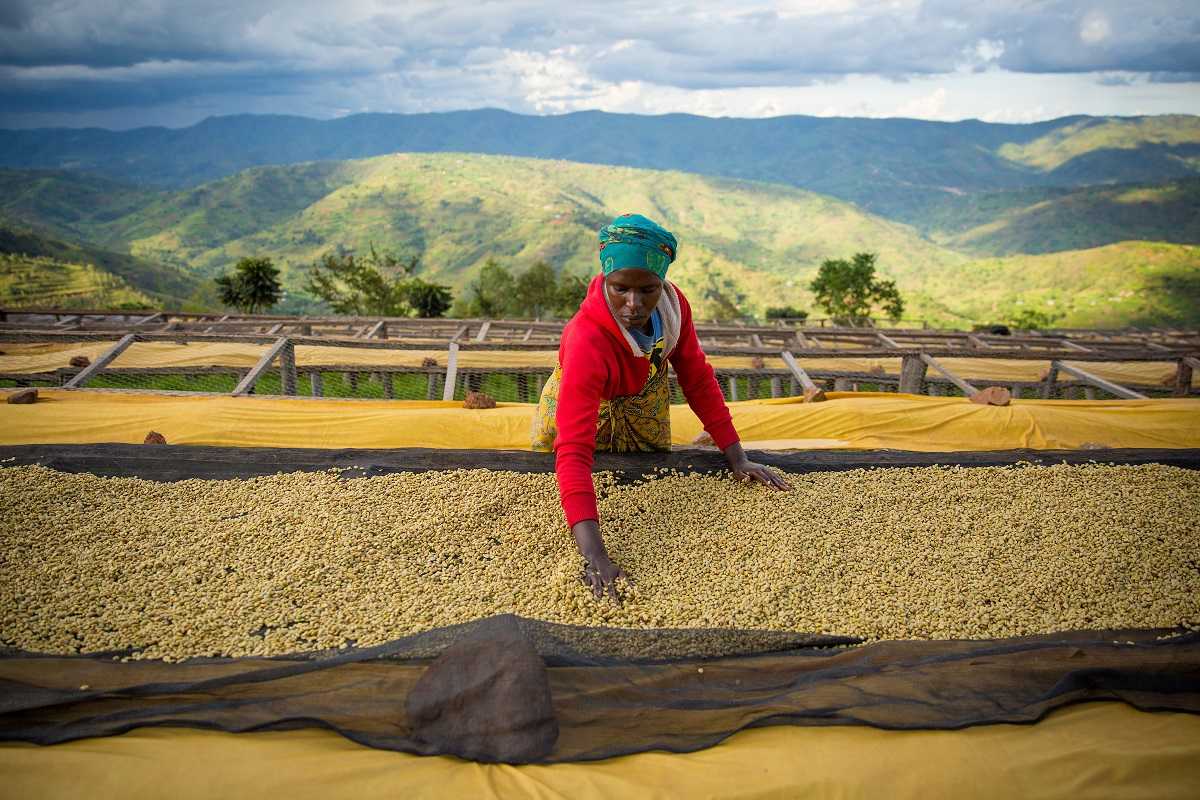As a continuation of its ethical sourcing commitment, Starbucks will launch a pilot program with select coffee farmers in Costa Rica, Colombia and Rwanda to develop next-level data technology to log and share real-time information along the journey of coffee beans with the aim of driving positive impact to smallholder farmers within its supply chain.
“Over the next two years, we will look to demonstrate how technology and innovative data platforms can give coffee farmers even more financial empowerment,” said Kevin Johnson, chief executive officer at Starbucks, who will discuss the announcement on stage at the 2018 Annual Meeting of Shareholders in Seattle today. “We’ll leverage an open-source approach to share what we learn with the rest of the world.”
Traceability technology could have profound implications for connecting coffee drinkers to the farmers who grow it, said Arthur Karuletwa, director of traceability at Starbucks.
“This could be a seismic change in an industry that hasn’t had much innovation in the way coffee moves across borders and oceans,” he said. “At the same time, I’ve met farmers who have very little by way of possessions, but they have a mobile phone. Digital has become the economic engine of this century, and traceability preserves the most valuable assets we have as human beings – our identity.”
A bridge from farmers to customers
Yesterday’s announcement represents the technology-enriched next step of work Starbucks has been doing for years to help sustainable coffee farmers establish individual identities, to give customers more transparency and to promote a higher level of accountability, Karuletwa said.
“A coffee farmer once told me, ‘These things you do for our coffee are not just about the preservation of a product, they are a preservation of us,’” Karuletwa said.
Karuletwa speaks poetically of coffee and the time he’s spent with coffee farmers in the space he calls “the first 10 feet.”
“To me, traceability of a global product such as coffee – one that has so much human depth and magnitude – is almost like taking an unedited photograph of ourselves. It’s an image that includes all that ails us, but more importantly, all that sustains us,” he said.
Apart from the transparency that traceability technology will provide at scale in relation to sustainability, Karuletwa also has a vision of using the technology to create an “authentic, seamless, dynamic” one-to-one connection between farmers across the globe and someone drinking coffee at, say, a Starbucks in Seattle or Shanghai.
“Coffee producers continue to embrace tools that equip them to be more sustainable in an ever-changing environment,” said Jean Nkunzimana of the MISOZI Coffee Cooperative in Rwanda. “From unpredictable climate changes to commodity price volatility, farmers continue to face multiple challenges in a global marketplace. With identity being the foundation of traceability, farmers have been able to leverage the value of being identified to create a credit history of the value of their production, as well as an acknowledgment of their self-worth.”
That connection to farmers is at the heart of the pilot, said Karuletwa.
“Elevation, process, entomology, soil composition, terroir, nutrients, rainfall – it carries little meaning if I’m not also talking about the rest of what makes the coffee possible, and that’s the people,” Karuletwa said.
“The taste of coffee eventually disappears off the palette, but what never leaves you are the stories of a people and the places. My hope is that this project will create familiarity between farmers and customers and enhance empathy, a commodity we have great need of today.”


















